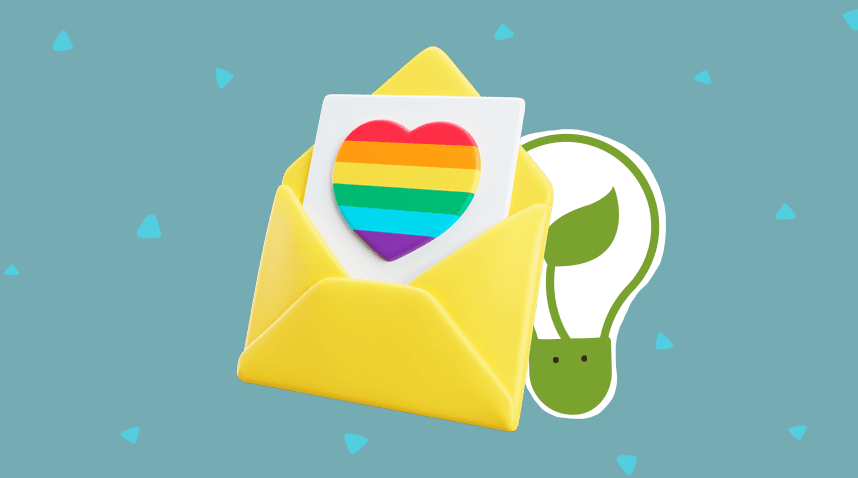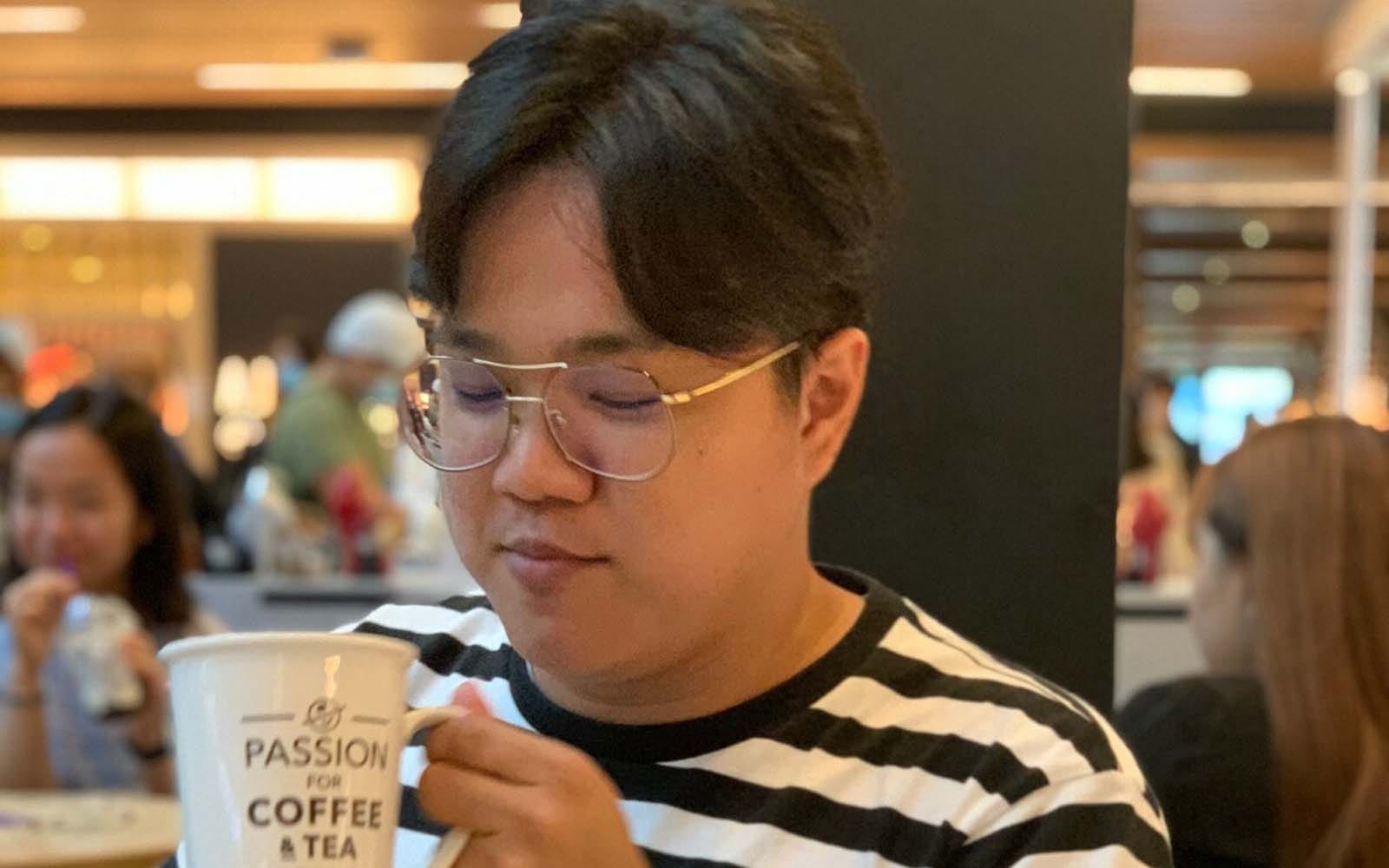
“I was worried about how my parents would react if they found out that I was gay”: Coming out as a gay Buddhist #pride
Introduction
Hi there! My name is Wilson and I identify as a gay cis-male, with pronouns he/him. To celebrate Pride Month, I would like to share some personal thoughts on the topic of coming out.
However, it’s important to note that coming out is a deeply personal process and is different for everyone. Without being sensitive to this, there can be misunderstandings and unintentional discrimination even amongst the different communities under the LGBTQ+ umbrella. The incident of an actress, Rebel Wilson, being outed publicly by a gay journalist before she was ready to, is one example.
As my sharing focuses heavily on the experiences of a gay cis-male, for the benefit of other members of the LGBTQ+ community, I have included resources at the end of this article to offer other perspectives on this topic.
Q&A
1. What does ‘coming out’ mean to you?

To me, ‘coming out’ is a process of ‘letting people in’. I know it sounds oxymoronic. Just imagine our house. There are some rooms that we would allow guests to enter, while some are only permitted to loved ones. Or perhaps we may choose to keep the doors closed at all times regardless of who it is.
These rooms represent different aspects of our identity, and coming out is akin to inviting others to see various sides of us. But it’s not just about letting others into these rooms. It’s also about letting ourselves in. Because coming out is part of a journey to accepting ourselves for who we are.
It took me a long time to accept my own sexuality. Therefore, I can understand if people around me need more time to come to terms with theirs too. Also, there isn’t any fixed order of letting people in. Some prefer to be completely comfortable with their own sexuality before coming out to others. Some prefer to have their loved ones support them on this journey of coming out from the beginning. Some prefer to come out to others after they are financially stable. Some prefer not to come out to others at all. You decide what is right for you.
Most importantly, allow yourself to embrace this aspect of you completely. The kindness that you grant to yourself will triumph over any kindness that others shower on you.
2. What challenges did you face growing up as a gay cis-male?

I first guessed that I was gay at the age of 11. When I started to realise that I was different from others, I began judging myself for being “abnormal”. I was constantly worried that others would find out about my secret. I tried to develop feelings for girls but it just somehow never felt right. I once confessed my feelings to a girl, to then realise that it was not what I truly felt.
In order to avoid dealing with my sexuality, I diverted my energy to my studies. I also built a staggeringly high wall in my heart to keep my parents out. I was worried about how they would react if they were to find out I was gay.
3. How did you do it then?

At 18, I developed a crush on a male classmate who was dating a girl. When I finally came to terms that it was unrequited, I felt really heartbroken. I remember feeling really silly and before long, nothing I did brought me joy and I would tear uncontrollably at random moments. I decided to confide in a close friend over MSN Messenger. (I can already picture the quizzical looks on the faces of Gen-Zs)
I shared with him my struggles and eventually, came out to him. He told me, “That doesn’t matter to me. You are still my friend, no matter what.” Till today, I feel truly blessed to have that as my first coming out experience, one that was met with unconditional love.
I came out to my parents when I was 23. While it took them some time, both of them were accepting. To me, I was finally able to bring down a wall that separated us for such a long time. Our relationship has improved since.
Now, I feel that I’m still on a journey of coming out to myself and others, but it is one with much more support from my loved ones. A few friends at work expressed concern about me coming out to colleagues. However, I feel like this is my way of showing the people around me that my sexuality is just one aspect of me and it does not change anything about the other aspects.
4. What is the funniest reaction you received when you came out to someone?
“How can you be gay? You love watching tennis and more importantly, your dress sense is horrible.”
I burst into laughter when a friend at work who previously thought that I had a “girlfriend” exclaimed that line, in jest (I believe). While I do admit that my dress sense is far from impeccable, her words reminded me of certain stereotypes that people have about gay males.
5. Can I still be a Buddhist after I have decided to come out as LGBTQ+?
Of course you can! Being LGBTQ+ does not stop you from progressing on the Noble Eightfold Path. Enlightenment is available to everyone regardless of gender and sexual orientation.
6. Any advice for someone who is struggling with understanding their sexuality?
Please be kind to yourself and give yourself the time and space to explore your feelings! In the meantime, find people or resources that you can trust to support you on your journey. I hope that as you discover more stories of those who have walked a similar path, you would realise that you are not alone and that there are safe spaces for you to make sense of all your feelings and thoughts.
I felt that as I judged myself excessively for my sexuality in my youth, I developed a coping mechanism by looking outwards instead of looking inwards. I gave a lot to others and yearned for affirmation. At the same time, I avoided my emotions and denied myself of the care and love that I gave to others. Over the years, I have learnt to love and care for myself as well as I do so for others and to accept the different aspects of me.
7. How can I be an ally for a friend on their coming out journey?
Be a friend like how you would be with other friends who face their own struggles in different areas! Practise active listening, avoid assumptions and respect the confidentiality of what has been confided in you. As you gain more awareness about the LGBTQ+ community, you can be an ally to your friend and also to others in the community.
Being a gay cis-male has shown me that different aspects of my identity can give me privilege or cause me to be discriminated against. This prompts me to be an ally for others who face discrimination, e.g. women and people living with HIV. When we are allies for one another, we can collectively love ourselves and others much better.
Conclusion
Writing this article felt like another step in my coming out journey and I honestly struggled while writing it. However, I am thankful to the people in my life who have accepted me for who I am and supported me in so many ways. For me, coming out has become something that I do more often with the people I meet now and I do hope that the world will be a better place for all who are facing discrimination in one way or another, not just the LGBTQ+ community.
Resources
Rebel Wilson outing sparks Australia media reckoning: https://www.bbc.co.uk/news/world-australia-61807511
Stonewall Resources: Stonewall | Coming Out
https://sujato.github.io/rainbow/
https://www.hrc.org/resources/being-an-lgbtq-ally
Wise Steps:
- Reflect:
- How does it feel to be seen as ‘different’?
- How would others help you feel included?
- Having this reflection enables us to empathise better
- Read resources to better understand the LGBTQ+ community and how we can be inclusive.
- In a world where we can be anything, let us first be kind.







